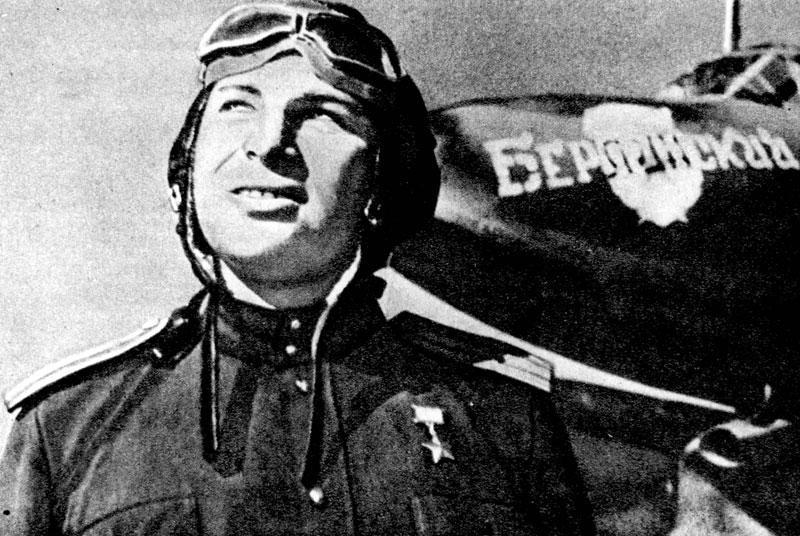Evel Beliavin was born in 1920 in the town of Borisov, Belorussia. His father was a carpenter. Like his three elder brothers, Evel graduated from a Yiddish school. Then he worked as a locksmith.
Evel wanted to become a pilot. In 1935 he enrolled in courses at a local airfield. Upon completing them, he left Borisov. In 1938 Beliavin was drafted into the Red Army. A year later he completed studies at a school for pilots, where he specialized in bombing.
During the war Evel served as pilot in the Soviet forces involved in the Battles of the Caucasus and Kursk. His three brothers also served in the Red Army. One of them, Roman, was also a pilot, while the two others, Boris and Iakov, fought in the infantry.
In 1944 Evel's squadron was attacked by German jet planes. The plane of Beliavin's commander was hit and thus, exposed to further German attack. Beliavin provided cover to the commander's plane with his own and returned the German fire. As a result his own plane was badly damaged. Beliavin thought of parachuting out but his gunner was severely wounded and could not jump. Therefore, against all odds, Beliavin succeeded in landing the plane. For this exploit he was awarded the title of the Hero of the Soviet Union. Mira Aizenshtadt (Zheleznova) wrote the article "Hero of the Soviet Union Yoel Beliavin" that was published in Eynikayt, the newspaper of Jewish Anti-Fascist Committee, on April 27, 1944. She wrote about his combat performance during the war.
Evel Beliavin logged more than 300 combat flights, ending with the battle for Berlin. In addition to being decorated as Hero of the Soviet Union, he was also awarded several other honors, including the Order of the Red Star, the Order of the Red Banner, and the Order of Alexander Nevsky.
In 1952 he completed a course for senior tactical combat officers. He retired from the army in 1972 with the rank of colonel.
Evel Beliavin died in 1970 in Minsk.







